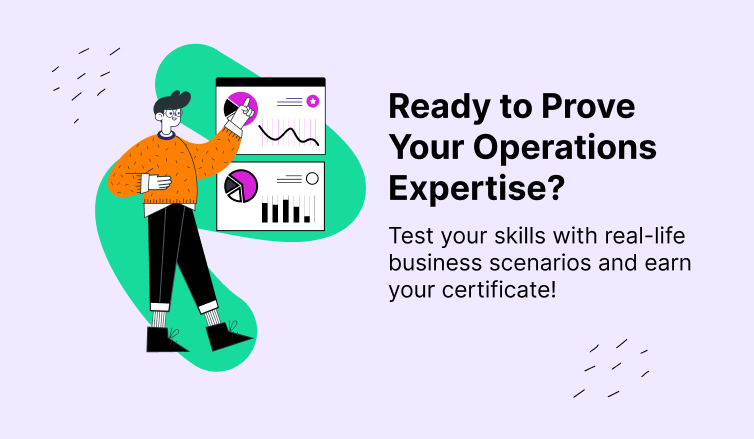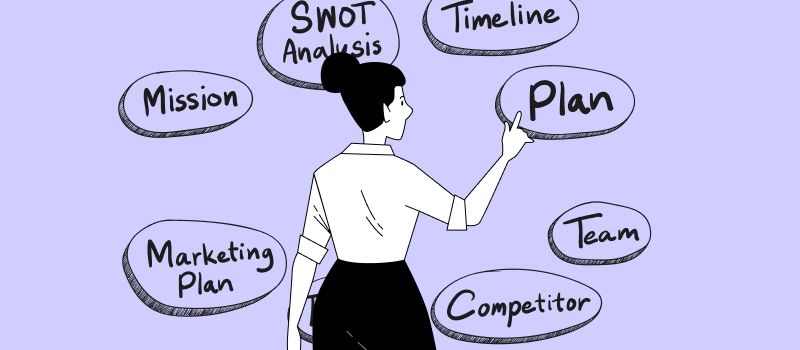
Sometimes, possessing technical skills or domain knowledge might not be enough to secure a promotion or advance your career. Employers increasingly seek individuals with higher-order skills that enable them to adapt, learn, and excel in various situations.
In this blog post, we will explore critical thinking, adaptability, time management, and other so-called meta skills that can help you position yourself as a valuable asset to your organization and find new opportunities for growth and advancement in your career journey.
A Quick Intro to Meta Skills
Meta skills, or “learning to learn,” allow individuals to effectively acquire, understand, and apply new knowledge and abilities.
Meta skills help individuals adapt to changing environments and learn new things quickly. They enhance problem-solving abilities by providing frameworks for approaching and solving complex issues.
Besides that, meta skills foster creativity by encouraging individuals to think outside the box and come up with innovative solutions. They also promote a growth mindset and a willingness to learn, leading to ongoing personal and professional development.
Meta Skills vs. Soft Skills vs. Hard Skills
There is no complication in differentiating meta skills from hard skills, as hard skills are task-specific and job-related, while meta skills facilitate learning and adaptation across different contexts. But when it comes to soft skills…
In layman’s words, soft skills are adjustable interpersonal abilities that can be applied in various settings and with different individuals, while meta skills are enduring and consistent traits. Let’s look at some examples.
5 Meta Skills Any Employer Looks for
In modern world meta skills play a vital role in employees’ success across industries, but what are the ones one can’t do without in terms of career advancement?
We believe that they are time management, critical thinking, adaptability, resilience, and goal setting is essential for securing promotions.
Why? Employers value individuals who can pivot when needed and embrace innovation with enthusiasm, solve complex problems, think creatively, and contribute valuable insights to their teams and organizations.
#1. Time Management
While soft skills like communication and teamwork are important for interpersonal interactions, time management is fundamental to effectively utilize those soft skills.
Time management involves prioritizing tasks, setting goals, planning, and organizing activities efficiently. It is a foundational skill that underpins the practical application of other skills. Good time management, efficiency, and disorganization can support even the most proficient soft skills.
How to train yourself:
- Create a schedule or to-do list to prioritize tasks.
- Break down tasks into smaller, manageable chunks.
- Set realistic deadlines for each task and track your progress.
- Say no to tasks that don’t align with your priorities.
#2. Critical Thinking
Critical thinking involves analyzing information objectively, evaluating arguments, and making reasoned judgments. It helps in problem-solving, decision-making, and understanding complex concepts.
It also involves self-reflection and the willingness to examine one’s own beliefs, biases, and assumptions. It promotes intellectual humility and openness to new ideas, leading to personal growth and development.
How to train yourself:
- Question assumptions and seek evidence to support claims.
- Analyze information from multiple sources before forming an opinion.
- Practice active listening and consider different perspectives.
- Engage in debates or discussions to sharpen your critical thinking skills.
# 3. Adaptability
Adaptable individuals can adjust their communication style, regulate their emotions to suit different audiences, build strong relationships, and collaborate effectively with others.
Adaptability also allows individuals to quickly switch gears, adjust their approach, and thrive in diverse environments. It also involves a willingness to learn and grow continuously.
How to train yourself:
- Embrace change and see challenges as opportunities for growth.
- Be open to new ideas and different ways of doing things.
- Practice flexibility by adapting to new situations with a positive attitude.
- Seek feedback from others to improve your adaptability.
# 4. Goal Setting and Progress Tracking
Goal setting and progress tracking are essential meta skills that can significantly enhance personal and professional development.
Setting clear, specific goals provides a sense of direction and purpose. It helps individuals understand what they want to achieve and why it is important. This clarity is crucial for staying motivated and focused.
Goals also act as motivators by giving individuals something to strive for. When progress is tracked, and milestones are achieved, it boosts motivation and encourages persistence, even in the face of challenges.
# 5. Resilience
Resilience is the ability to bounce back from difficult experiences and adapt positively to adversity. It involves perseverance, optimism, and the capacity to overcome obstacles and cope with stress, challenges, and setbacks in a healthy way.
Resilience interacts with other meta skills in a very interesting way. Developing any trait mentioned above can enhance resilience by providing individuals with the tools to navigate challenges effectively. On the other hand, cultivating resilience supports self-regulation and problem-solving.
Can Meta Skills Be Developed and How?
Of course, apart from self-discipline, one of the key ways to develop meta skills is through training and education.
Training programs provide opportunities for practicing and refining problem-solving and decision-making in real-world scenarios.
However, with the proliferation of online learning platforms, mobile apps, virtual reality simulations, and artificial intelligence tools, individuals have gained access to a wealth of resources that can help them cultivate essential competence.
Apps to Add to Your Metacognitive Toolbox
Here are just a few applications that can help develop skills such as time management, adaptability, resilience, goal setting, and critical thinking.
Several software products can help develop skills such as time management, adaptability, resilience, goal setting, and critical thinking. Here are some examples:
- actiTIME. A project management tool that can aid in time management and goal setting and by visualizing tasks and projects on boards.
- Evernote. A note-taking app that can improve organization, time management, and critical thinking by capturing ideas, notes, and tasks in one place.
- MindMeister. A mind mapping tool that enhances critical thinking by visually organizing ideas and concepts.
- Headspace. A meditation and mindfulness app that can help improve resilience and adaptability by reducing stress and increasing focus.
- Elevate. A brain training app that offers games and exercises to improve critical thinking, adaptability, and problem-solving skills.
Final Recommendations
Remember, while technical skills may get you in the door, your meta skills will set you apart and propel you toward long-term success in your career!
However, developing these is an ongoing process that requires dedication and practice.
By leveraging the power of self-training, traditional education methods, and innovative software, you will equip yourself with the tools you need to thrive in an increasingly complex and interconnected world.












































